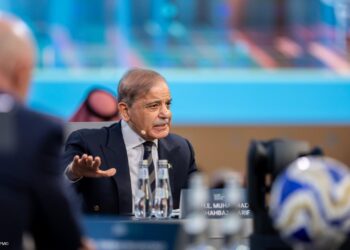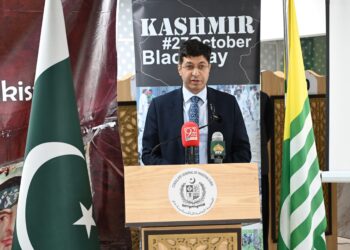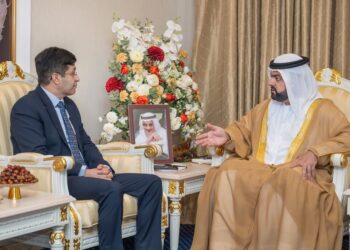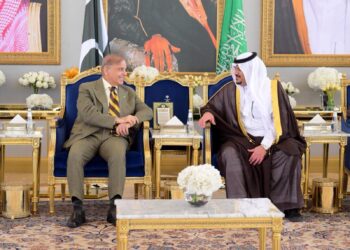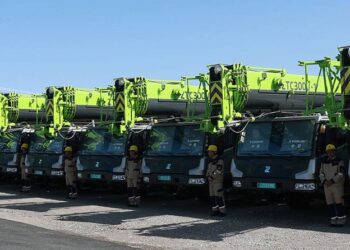APP

Riyadh: Prime Minister Shehbaz Sharif held a cordial meeting with Saudi Crown Prince and Prime Minister Mohammed bin Salman in Riyadh, where the two leaders discussed expanding bilateral trade, investment, and cooperation across key economic sectors.
The meeting, attended by Deputy Prime Minister and Foreign Minister Ishaq Dar, Chief of Army Staff General Syed Asim Munir, and senior cabinet members from both nations, focused on strengthening long-standing ties between Pakistan and Saudi Arabia.
Following the discussions, the two sides formally launched the Pakistan–Saudi Economic Cooperation Framework, a new initiative designed to advance shared economic goals and enhance collaboration in trade, investment, energy, industry, mining, technology, tourism, agriculture, and food security.
According to a statement from Pakistan’s Foreign Office, the framework will facilitate several strategic and high-impact projects, boost private sector engagement, and promote sustainable economic growth between the two brotherly nations.
In a post on X, Prime Minister Shehbaz wrote:
“It was a great pleasure and honor to meet my brother, His Royal Highness Crown Prince Mohammed bin Salman, in Riyadh today. I remain deeply grateful for his personal commitment and resolute support in advancing our shared vision for deeper collaboration and prosperity for our two nations and peoples.”
Information Minister Attaullah Tarar hailed the development as “another historic chapter in Pakistan–Saudi relations,” describing it as a high point in the strategic partnership between the two countries.
The announcement coincided with the Ninth Edition of the Future Investment Initiative (FII9) in Riyadh, themed “The Key to Prosperity: Unlocking New Frontiers of Growth.” The global forum brought together investors, innovators, and policymakers to explore opportunities in sustainability, innovation, and economic inclusion.
During a panel discussion at FII9, Prime Minister Shehbaz highlighted Pakistan’s economic reforms, climate resilience challenges, and the digitisation of the Federal Board of Revenue (FBR) to improve transparency. He underscored that Pakistan, despite contributing less than one percent to global carbon emissions, remains among the countries most affected by climate change.
“We have made mistakes in the past, but we are learning from them,” he said, stressing that global cooperation — not loans — was key to sustainable recovery. “Humanity must move forward together, sharing its bounties and grievances alike.”
The premier also pointed to Pakistan’s growing embrace of technology and artificial intelligence, urging global cooperation for equitable resource distribution between the Global North and South.
Meanwhile, Foreign Minister Ishaq Dar met with his Saudi counterpart Prince Faisal bin Farhan Al Saud to discuss bilateral relations, regional issues, and the humanitarian situation in Gaza. Both ministers reaffirmed their countries’ commitment to multilateral cooperation and strengthening their “multifaceted partnership” across all domains.
Pakistan and Saudi Arabia share a deep-rooted relationship based on religious, cultural, and strategic ties. In September, the two countries signed a Strategic Mutual Defence Agreement in Riyadh, pledging that any attack on either nation would be considered an act of aggression against both.
Over the past two years, Pakistan and Saudi Arabia have signed 61 Memoranda of Understanding (MoUs) worth more than $5 billion, covering investments in energy, infrastructure, and technology.


